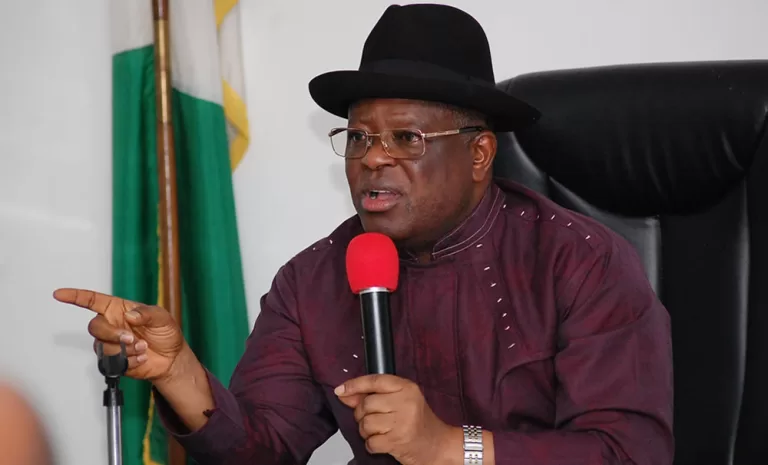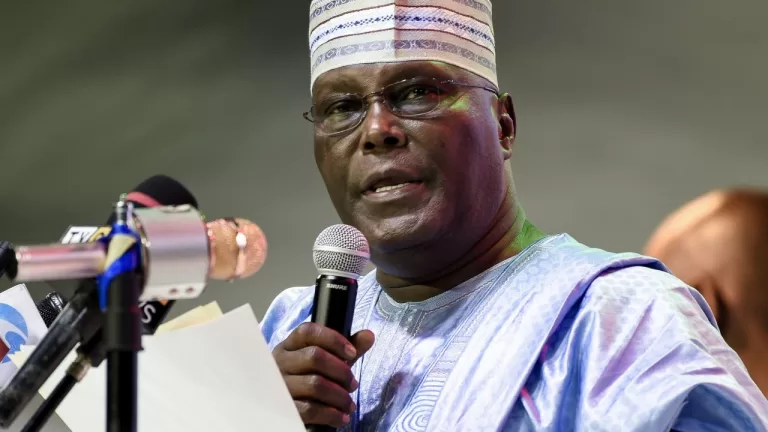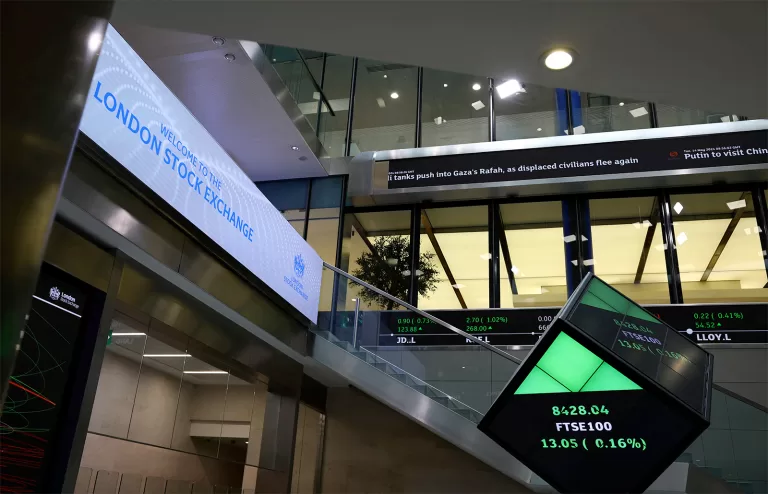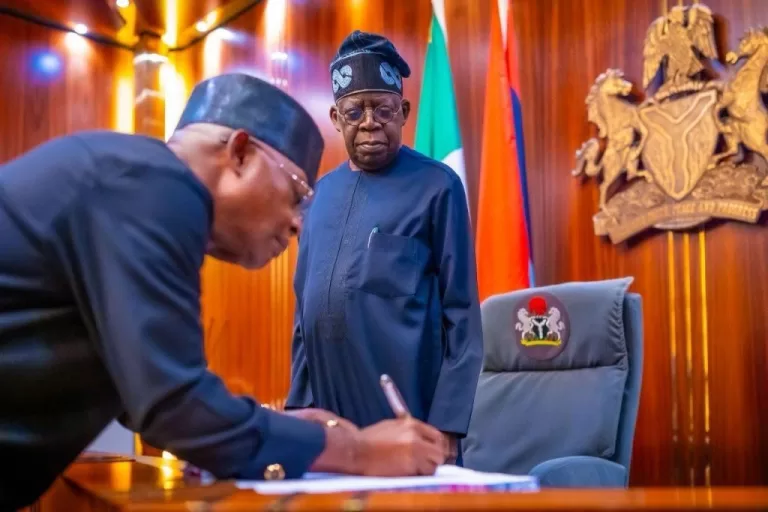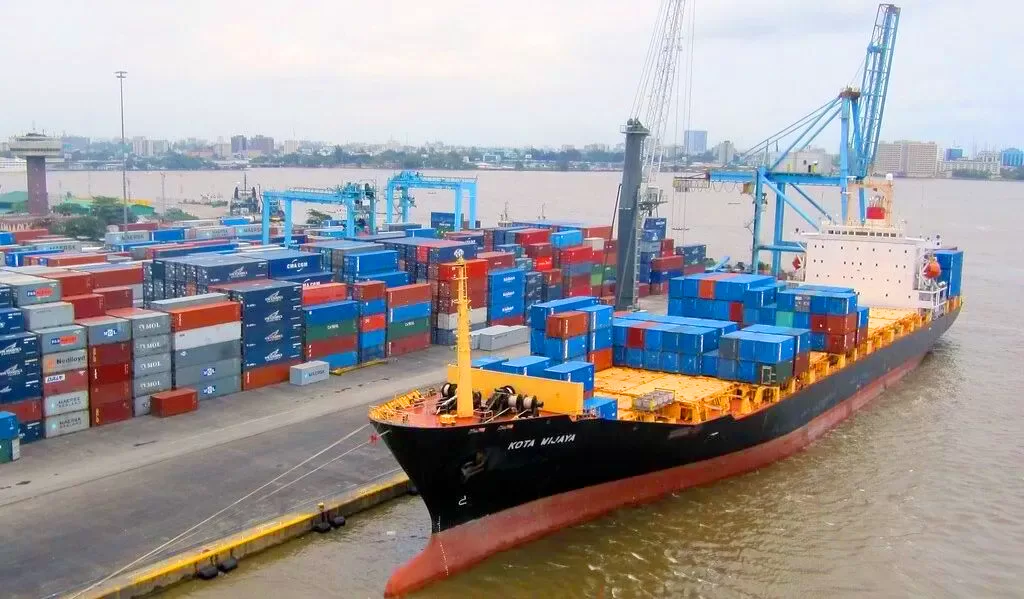
News Analysis
President Donald Trump’s sweeping tariff policies are reshaping global trade, and Nigeria is not exempt from its impact. While much of the focus has been on U.S. trade battles with China and the European Union, Nigeria faces its own challenges—including a 14% reciprocal tariff imposed by the United States.
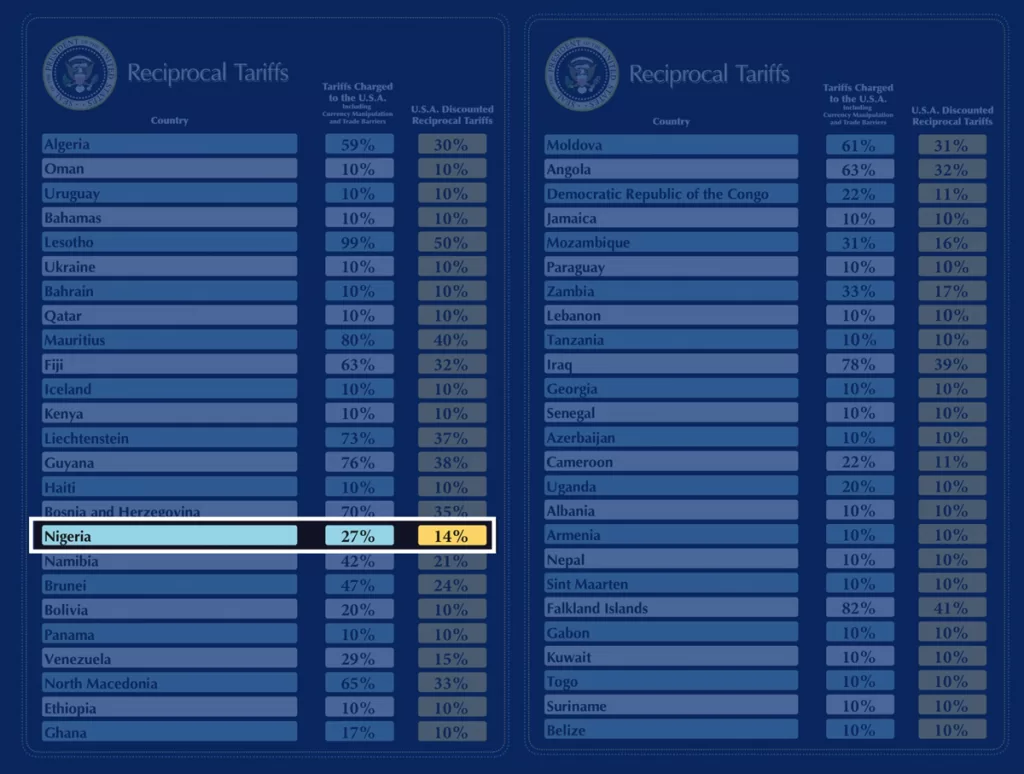
The broader economic fallout of these policies could disrupt oil exports, increase inflation, strain trade relationships, and weaken foreign investment in Nigeria. Here’s what’s at stake:
U.S. Tariffs on Nigerian Goods: A New Trade Barrier
The 14% reciprocal tariff placed on Nigerian exports to the U.S. presents a direct challenge for businesses relying on American markets. While Nigeria is not the U.S.’s largest trading partner, this tariff could have significant consequences:
- Reduced export competitiveness: Higher tariffs make Nigerian goods more expensive for U.S. buyers, potentially reducing demand for key exports such as agricultural products (cocoa, cashew nuts, sesame seeds) and textiles.
- AGOA uncertainty: The African Growth and Opportunity Act (AGOA) has provided duty-free access to the U.S. for Nigerian exports, but with Trump’s protectionist stance, the future of this trade agreement—set to expire in 2025—is now in question.
- Investment deterrent: U.S. companies looking to source raw materials from Nigeria may reconsider due to increased costs, potentially slowing investment in sectors like agriculture and manufacturing.
Oil Exports: Volatility Ahead
Nigeria, a major oil producer, remains highly exposed to global energy market shifts. While crude oil itself has not been targeted by U.S. tariffs, the indirect impact could still be profound:
- Global demand uncertainty: Trade wars could slow economic growth in key markets such as China and Europe, leading to lower oil demand and affecting Nigeria’s primary revenue source.
- Price volatility: Geopolitical trade disputes tend to trigger fluctuations in oil prices, making government revenue projections unpredictable.
- Currency pressure: A decline in oil earnings could weaken Nigeria’s foreign reserves, depreciate the naira, and stoke inflation—worsening economic instability.
Trade Disruptions with China and Europe
China and the European Union—Nigeria’s largest trading partners—are both heavily targeted by Trump’s tariffs (34% on Chinese goods, 20% on European imports). A slowdown in these economies could ripple through Nigeria in several ways:
- Rising import costs: Nigeria heavily depends on imports from China and the EU, particularly for machinery, electronics, and consumer goods. If manufacturing costs rise due to tariffs, Nigerian consumers could face higher prices.
- Weakened foreign investment: Many Chinese firms investing in Nigeria’s infrastructure and manufacturing may scale back if their profits shrink under U.S. tariffs.
- Reduced export opportunities: If China and Europe reduce imports from Nigeria, key sectors such as agriculture and solid minerals could suffer.
Inflation and Cost-of-Living Concerns
With Nigeria’s economy reliant on imported goods, rising trade costs could fuel inflation across several key industries:
- Automobiles and electronics: Higher manufacturing costs in China, Japan, and Europe could make cars, mobile phones, and household appliances more expensive in Nigeria.
- Pharmaceuticals: Many essential medicines and medical supplies are sourced from India and Europe—both affected by U.S. tariffs. This could drive up healthcare costs.
- Food imports: Nigeria relies on imports for staple foods such as wheat, rice, and dairy products. Any disruption in global trade could lead to higher food prices, worsening an already fragile cost-of-living situation.
Currency Volatility: A Stronger Dollar, A Weaker Naira
Trade wars often push investors toward the U.S. dollar, strengthening it against emerging market currencies. A weaker naira could pose several risks:
- Higher import costs: A weaker naira would make it more expensive for Nigeria to purchase essential goods from abroad.
- Rising debt repayment burden: With over $40 billion in external debt, Nigeria could face higher servicing costs, further straining government finances.
What Can Nigeria Do?
To mitigate the risks posed by Trump’s trade policies, Nigeria must take proactive steps:
- Strengthen local production: Reducing reliance on imported goods—especially food and medicine—could shield Nigeria from global trade shocks.
- Diversify trade partnerships: Expanding trade beyond the U.S. and China—particularly within Africa through the African Continental Free Trade Area (AfCFTA) and emerging markets such as India, Brazil, and the Middle East—could reduce dependency on volatile global economies.
- Monitor oil price trends: If global demand weakens, Nigeria must develop alternative revenue streams beyond crude oil exports.
- Attract investment from new sources: With traditional economic giants facing trade pressure, Nigeria could turn to non-Western investors to support infrastructure and industrial growth.
Nigeria is no longer just a bystander in Trump’s global trade policy—it is directly impacted by the 14% reciprocal tariff imposed by the U.S. combined with broader global economic uncertainty, this policy shift could raise import costs, weaken foreign investment, and further strain the country’s economic stability.
Navigating this turbulence will require strategic adaptation—through economic diversification, local production boosts, and stronger regional trade alliances. How Nigeria responds will determine its resilience in an increasingly uncertain global trade environment.


